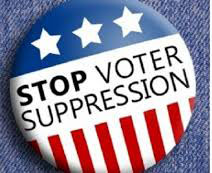Recent news reports about mortality counts for the Coronavirus point to the potential of large under-counts due to the exclusion of deaths occurring at homes and the classification of causes of death in the frenzied environment of so many deaths occurring in communities. [i]
In addition, national reviews are showing that black mortality rates are much higher – sometimes twice as much – as their representation in the population for several communities such as Michigan, Illinois, North Carolina and South Carolina. [ii] Relatively less information has been provided in national news reports regarding mortality rates for Latinos.
Recognizing these racial disparities, elected officials in Texas are pressing Governor Greg Abbot to form an emergency task force to evaluate racial disparities surrounding the coronavirus pandemic since several Texas cities are reporting that the disease is disproportionately affecting black residents. [iii] Large gaps in data collection, however, exist at the county and state level, meaning that the full picture is unclear. In response to these concerns, the Governor’s office offered no comment and continues its policy of not mandating the collection of this critical information. As the Texas elected officials emphasized, the demographic data regarding Covid-19 mortalities is needed to guide resources to the more vulnerable communities or “hot spots” in the state.
Unfortunately, accurate estimates of Covid-19 mortality rates by race-ethnicity are systematically under-estimated because so many of the deaths are not being classified by race-ethnicity. The absence of race-ethnic data undermines the planning of intervention strategies since it is fairly well understood that identifying clusters of infected persons can expedite a quick intervention and solution to the spread of the virus.
Thus far, the knowledge that blacks have higher Covid-19 mortality rates compared to their population in a community has been attributed to the confluence of co-morbidities like diabetes, high blood pressure, obesity, and higher prevalence of cardiovascular disease. Less attention has been devoted, however, to the influence of social determinants of health – that is, black people tend to live in poor areas that include poor access to healthy foods and healthcare providers.[iv] There could be other correlates that are equally important in explaining these high mortality rates, such as lack of knowledge about the virus, negative attitudes towards healthcare providers, religious beliefs, fear of family separation, and other psychological factors.
An Important Question to Ponder
Given the gravity of the high mortality rates among blacks and Hispanics, and the real possibility that they could be higher and likely to spread the virus more rapidly in these vulnerable communities, why have public officials not mandated the collection of race-ethnic information for Covid-19 infected persons and mortalities?
Thus far, the explanations appear to rest on the assumption or belief that the sheer volume of mortalities does not allow sufficient time to demographically classify the corpses. While this theory may be true, following are a few examples from my research practice that illustrate the consequences of policies that utilize inaccurate race-ethnic information or appear indifferent to its inclusion. In general, the solutions were not complicated nor time consuming.
Is Racial Profiling on the Decline?:
A recent analysis of traffic stops made by the Texas Highway Patrol revealed that racial profiling of Hispanics was on the decline, although critics suspected that the Department of Public Safety (DPS) was deliberately misclassifying Texas drivers that they stopped in order to lower the state’s racial profiling statistics. [v] Further analysis, however, revealed that the DPS troopers were assigning the race category based on the physical characteristics of the drivers. For example, by classifying Hispanic drivers as “white,” the racial profiling statistics were systematically lowered in the State of Texas. The recommended solution was to simply ask each driver to self-identify their race or ethnicity by choosing from a card with standard race-ethnic categories that could be presented by the DPS trooper. [vi]
Relying on Surnames: A Legal Matter
In a Dallas County murder trial that engaged me as an expert witness, the defense attorney had requested a change of venue because he felt that a fair trial was not possible for his Hispanic client. Why? Because the share of Hispanics in the jury pool was likely to be substantially different from the Hispanic share of the county’s population. I was asked to conduct a statistical analysis to address this issue; however, the race-ethnic information recorded by the court for jury pool members was considered unreliable for the analysis because it was inconsistently recorded. A surname was the only information available to estimate the Hispanic ethnicity of jury pool members at an estimated accuracy of 75 percent. A change of venue was justified since the estimate of Hispanics in the jury pool was not reflective of their representation in the County’s population. Clearly, a different legal outcome might have resulted if the venue had not changed.
The Mystery Surrounding the Causes of Asian Mortalities
Information about the leading causes of mortality among Asian American subgroups have been few in epidemiological studies because (a) only seven states collected Asian subgroup information on death records before 2003, (b) coroners were more likely to make race-ethnic classification errors for Asian Americans (13%) and Hispanics (7%) and (c) national health surveys did not report data for Asian American subgroups. [vii] As a result, misleading and erroneous conclusions were often made due to the omission of Asian respondents resulting from small sample sizes, or the aggregation of data that masked important differences among the Asian subgroups. For example:
· Asian Indians have greater coronary heart disease risk than Chinese persons when compared to non-Hispanic whites;
· Japanese have greater risk for incident cancers while Asian Indians have the lowest risk;
· Liver cancer mortality rates are higher for Vietnamese, Koreans and Chinese when compared to other Asian American subgroups and non-Hispanic whites.
· Colorectal cancer rates are particularly higher for Japanese and exceed the rates for non-Hispanic whites and all other Asian subgroups.
The study investigators also discussed the results of recent pharmacogenomics studies that document how some Asian American subgroups respond differently to a variety of drug treatments, including chemotherapy, anti-coagulants, anti-platelets, and anticonvulsants. The inclusion of Asian subgroup categories in major health surveys and in the processing of medical information has greatly expanded medical knowledge and treatment related to Asian subgroups. At least in the medical arena, the study investigators clearly illustrated that carelessness or indifference to the use of Asian subgroup identities can have significant consequences.
Thus, it should be obvious that missing or inaccurate race-ethnic information can have serious consequences to our quality of life and should not be dismissed so easily by public officials who believe that it requires a great investment of time.
Current Technology Points to a Simple Solution for the Covid-19
In the absence of information regarding the race-ethnic background of a given population, we can take comfort in knowing that it is now possible to classify the race-ethnic background of an individual based on their first name, last name and their residential zip code. Ethnic Technologies developed a proprietary classification system called E-Tech 2020 [viii] which has been utilized in several survey studies that I have conducted in past years. In one national study of black, Latino and Asian consumers in the U.S., race-ethnicity information was missing and presented a major barrier to the sample design and planning of the survey. The E-Tech tool was used to estimate a race-ethnic category in a database of 200,000 household addresses that allowed us to plan the appropriate language for the questionnaires and manage a team of telephone interviewers with the relevant language skills. The completed surveys that we received confirmed that the accuracy of the assigned race-ethnic category using the E-Tech tool was 80-90 percent when compared to the self-reported race-ethnicity of the survey respondents. Self-identification has usually been found to be a more valid measure of a person’s race and ethnicity, while surname and language preference have also been used although considered less valid measures. [ix] In a more recent review and analysis using geo-coding and surnames to estimate race and ethnicity, the investigators concluded that the combined approach can yield positive predictive values of 80 percent, thereby offering a viable means for assigning race and ethnicity for the purpose of examining disparities in care until self-reported data can be systematically collected. [x] While not a perfect measure, the E-Tech tool has been shown to be quite useful in my past research experience.
What is the relevance of the E-Tech tool for the Covid-19 situation? Simply, it can drastically reduce the amount of time needed to identify the likely race-ethnic categories for a listing of mortalities that includes their names and addresses. Moreover, the E-Tech tool is affordable and likely to fit most public agency budgets. By using this service, public officials could more readily identify clusters of vulnerable populations, such as blacks and Latinos, that require immediate intervention to minimize the spread of the coronavirus. While the accuracy of the E-Tech tool in estimating a person’s race-ethnic classification is not 100 percent, it nevertheless presents a significant advantage over the current system of delays and backlogs that are typical in public agencies.
I challenge Gov. Abbott and other public officials to mandate the classification of race-ethnicity for all Covid-19 infections and mortalities using the E-Tech tool or perhaps another service that accomplishes similar results. Indeed, this action would illustrate true leadership in our collective efforts to stop the threat of this deadly virus.
Reference Notes
[vii] Holland, A.T. & Palaniappan, L.P. (2012, June 22). Problems in the collection and interpretation of Asian-American health data: Omission, aggregation, and extrapolation. Ann. Epidemiol. 2(6).
[ix]Rincón, E. T. (in press).
The Culture of Research, Writers Marq, Dallas, Texas.
(x) Fiscella, K. and Fremont, A.M. (2006). Use of geocoding and surname analysis to estimate race and ethnicity.
Health Services Research, 41-4, Part I. Access on 4-17-20 at https://www.ncbi.nlm.nih.gov/pmc/articles/PMC1797082



